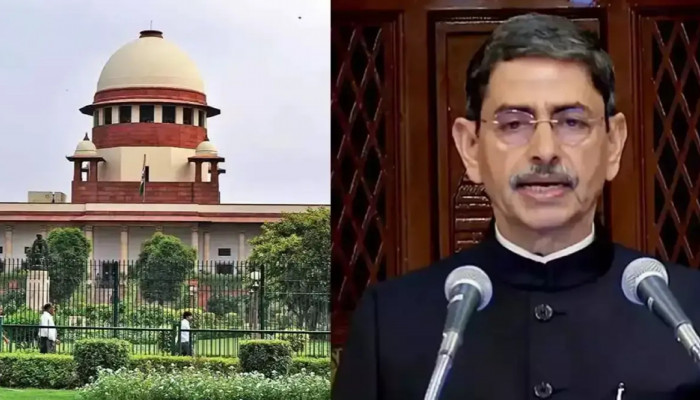SC raps Tamil Nadu governor over pending bills
- In Reports
- 03:55 PM, Apr 08, 2025
- Myind Staff
In a major win for the Tamil Nadu government, the Supreme Court on Tuesday criticized Governor RN Ravi, calling his move to withhold bills passed by the state Assembly “illegal.” While hearing the state government's petition against the Governor's actions, the court also laid down a clear constitutional timeline that Governors must follow when dealing with bills passed by state legislatures.
The Supreme Court strongly criticised the Tamil Nadu Governor, calling his long delay in taking action “non-bonafide” and against the Constitution. Along with this, the Court also set a clear timeline that Governors must follow when dealing with bills passed by state legislatures. The Court said that under Article 200 of the Constitution, a Governor cannot keep bills pending forever. The Governor must take action within three months—either approve the bill, send it back to the state assembly, or refer it to the President. In the case of Tamil Nadu, where 10 bills were waiting for approval, the Court noted that due to the unusually long and unconstitutional delay, the bills could be considered as having received assent.
“The Constitution expects the Governor to act expeditiously. Undue delay violates the very spirit of democratic governance,” the Court said, mentioning that this move was necessary to “calm waters stirred by a high constitutional functionary.” The Court ruled categorically that "the concepts of pocket veto or absolute veto do not exist in the Indian Constitution" and that "withholding of assent is not an independent or indefinite option." Any inaction or delay is a violation of the constitution. The Court explained that while the Governor can use discretion in rare situations—like when a bill could cause public harm or needs the President’s approval—Article 200 still puts clear limits on how much discretion the Governor has.
“There is no scope of inaction. The Governor is under a constitutional obligation to act,” the Court said, referring to Article 200 of the Constitution. Without following the due procedure laid out under this article, the Court remarked, “bills remain mere paper.”
The Court strongly stated that Governors cannot delay or ignore bills passed by the legislature. If a bill is sent back to the House and passed again, the Governor is required to approve it—unless the bill has been significantly changed. Once the Governor returns the bill and it is passed again, they no longer have the power to reject it. The Court made it clear that while the President's approval is not subject to judicial review, the actions of the Governor can still be examined by the courts. Any action or failure to act by the Governor must be in line with the Constitution and democratic principles. The Court also pointed out the Governor’s oath of office, which emphasises the well-being of the people. As the constitutional head of the State, the Governor’s role is to support the will and welfare of the people, not to create obstacles for elected legislatures.
“When called upon to act, constitutional authorities must be guided by the spirit of the Constitution,” the bench observed. The ruling affirms that, in order to safeguard democratic processes, arbitrary inaction can and will be subject to judicial review. Chief Minister MK Stalin welcomed the decision and said it was a big win not just for Tamil Nadu, but for all states.







Comments